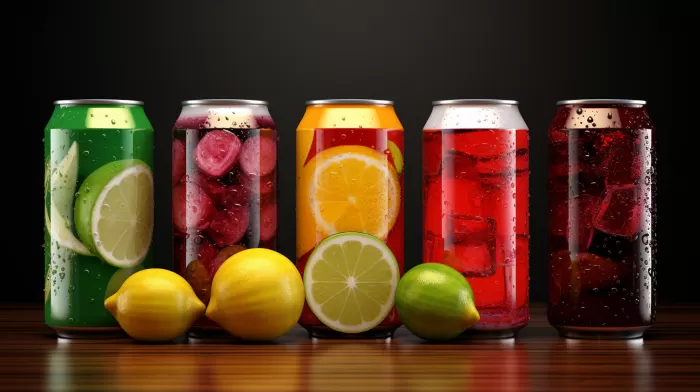Sipping popular sweet beverages every day may make you more vulnerable to cancer. Research shows that a woman’s choice of drink can significantly affect her chances of developing endometrial cancer. Postmenopausal women with the highest intake of sugar-sweetened beverages, such as soft drinks and juice drinks, have a 78% increased risk of estrogen-dependent type I endometrial cancer – the most common type. The more sugar-sweetened beverages you consume, the greater your cancer risk.
The Alarming Connection
It may not seem surprising that women who drank more sugar-sweetened beverages had a higher risk of estrogen-dependent type I endometrial cancer, but not estrogen-independent type II endometrial cancer. Other studies have shown that increasing consumption of sugar-sweetened beverages has paralleled the increase in obesity. Obese women tend to have higher levels of estrogens and insulin than women of normal weight. Increased levels of estrogens and insulin are established risk factors for endometrial cancer.
Other Health Dangers of Sugar-Sweetened Beverages
The potential risk of developing endometrial cancer is not the only health concern associated with consuming sugar-sweetened beverages. In fact, the consumption of these beverages has been linked to several other health problems:
- Obesity – As mentioned earlier, the consumption of sugar-sweetened beverages has been directly linked to obesity, which increases the risk of multiple health problems, including cancer.
-
Diabetes – A study published in the journal Diabetes Care found that people who consumed just one to two sugar-sweetened beverages per day had a 26% greater risk of developing type 2 diabetes compared to those who drank less than one per month.
-
Heart Disease – A study published in the journal Circulation found that men who consumed one or more sugar-sweetened beverages per day had a 20% higher risk of heart attack compared to those who rarely consumed these beverages.
-
Liver Disease – The American Journal of Clinical Nutrition published a study linking the consumption of sugar-sweetened beverages to an increased risk of non-alcoholic fatty liver disease (NAFLD).
Tips for Reducing Sugar-Sweetened Beverage Consumption
Cutting back on sugar-sweetened beverages is essential for reducing your risk of endometrial cancer and other health problems. Here are some simple tips for reducing your consumption:
- Switch to water – Make a conscious effort to reach for a glass of water instead of a sweetened beverage. Dehydration could also be confused for thirst, so make sure you’re drinking water throughout the day.
-
Choose unsweetened tea or coffee – If you crave flavored beverages, opt for unsweetened tea or coffee. Many herbal teas offer a satisfying flavor without the sugar content.
-
Flavor your water – Add some excitement to your water by infusing it with fresh fruit, such as strawberries, oranges, or cucumbers. You’ll enjoy a hint of flavor without added sugar.
-
Make your own smoothies and juices – Commercial smoothies and fruit juices often contain high amounts of sugar. Make your own at home using whole fruits and vegetables, and limit the amount of added sweeteners.
-
Read labels carefully – The label “reduced sugar” does not necessarily mean it’s a good choice. Make sure to read the ingredients and nutrition labels to determine the sugar content of the products you’re purchasing.
A Better Way to Satisfy Your Sweet Tooth
If you’re struggling to cut sugary beverages out of your diet, remember the potential health risks involved. Instead, opt for healthier alternatives to satisfy your sweet tooth without putting your health at risk:
- Fresh fruit – The natural sweetness of fruit allows for a satisfying treat without the artificial sugar content found in many packaged goods.
-
Greek yogurt – Enjoy a serving of Greek yogurt and sweeten it naturally with honey or fresh fruit.
-
Dark chocolate – Craving chocolate? Opt for a small serving of dark chocolate, which has less sugar and added health benefits.
By cutting back on your sugar-sweetened beverage consumption and opting for healthier alternatives, you’re taking a step towards reducing your risk of endometrial cancer and other potential health problems. Make a conscious effort to protect your health by examining your daily beverage choices and making healthier decisions.



